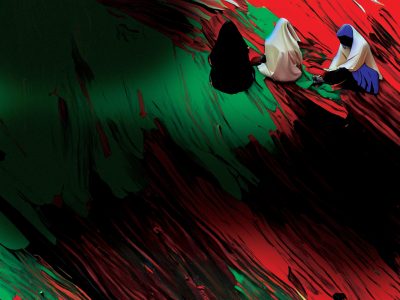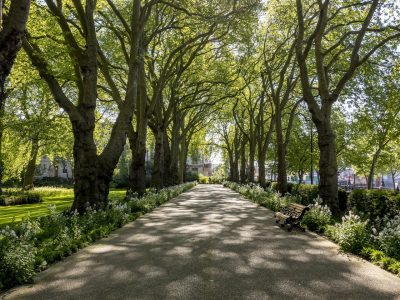
Two Years On: The Plight of Afghan Women Judges
15 August 2023 was the second anniversary of the fall of the government of Afghanistan. There are still occasional news articles, but the world seems to have moved on and international events closer to home, like the appalling situation in Ukraine, has meant that interest in Afghanistan has reduced. For about two dozen women judges, British and Afghan, that level of interest has not reduced at all.
In early 2021, I was asked by Roger Coventry to see if it was possible to set up some form of peer to peer support group through which British women judges could build contact with women judges in Afghanistan. Roger was a British barrister who sat as a High Court Judge overseas and has worked as an advisor to the Foreign, Commonwealth & Development Office (FCDO) in West Africa, Pakistan, Afghanistan and currently in Lebanon.
In 2021, he was working in Kabul. In January two women judges were assassinated on their way to court and the tremendous progress of the previous 20 years began to look a little bit precarious. We had no idea how precarious it actually was. The plan was to establish a system of direct links, usually by WhatsApp or similar, for the judges to discuss matters of common interest and exchange any ideas that might help and support.
The plan was to establish a system of direct links, usually by WhatsApp or similar, for the judges to discuss matters of common interest and exchange any ideas that might help and support.
When the government fell, the fact of being a woman judge gave a licence to the Taliban to hunt them down and assassinate them. The prisons were opened and women judges who had had the temerity to sit in judgement on men were a particular target.
They burned their degree certificates and legal textbooks and went into hiding. They were under constant threat. The judges here spent days and nights trying to maintain contact, to find out if people had managed to get to the airport and safely on to one of the very few flights leaving.
Thankfully some of the 200 plus women judges did get out, though by no means all, and about 20 to 30 arrived in the UK and Ireland.
They came with nothing more than the clothes they were wearing, some had young children, all were terrified. They were given emergency accommodation in hotels around the country. They were bewildered at best, some were traumatised. The efforts of the International Association of Women Judges and the International Bar Association in helping to get the women out were astonishing. Once they were here, the dedication and commitment shown by the British judges has been quite unbelievable. We should all be incredibly proud that women from the United Kingdom Association of Women Judges (UKAWJ) with difficult jobs and personal commitments of their own gave so much time, effort and compassion to help their Afghan colleagues. And it continues.
The women who came were judges from all areas and from all levels of the judiciary from the District Court all the way up to the Supreme Court. A couple had reasonably good English, most did not, and some had none.
They have been helped and supported on a daily basis for the last two years and their stories are remarkable. One has finished a Masters at Oxford. Others are taking different levels of courses. All are being helped with their spoken and written English. Their degrees do not qualify them to undertake post-graduate legal education here but with the help of some firms of solicitors and CILEX some are on the way to qualification.
The Inner Temple and Middle Temple made their own contributions in providing some lap-tops for the women which have been essential to their learning English. The Council of Circuit Judges and the Slynn Foundation have made significant donations which continue to help support their educational and practical needs. We owe an enormous debt to the Lewisham Refugee and Migrant Network for agreeing to take on the burden of holding and distributing the funds.
Two years on and the last woman and her family have only just moved out of a hotel and into permanent accommodation. Most of the women have found jobs, often menial compared to their previous lives but they are working hard. Their children are doing well at school, incredibly so, given what they have been through.
Life here is obviously very difficult. They are refugees, but they are also highly trained women who long to re-qualify; they want to try to find a way to re-build their dignity and professional pride. They are not always welcomed here and for some, their personal security remains a problem. We have tried to protect their privacy and dignity.
Life here is obviously very difficult. They are refugees, but they are also highly trained women who long to re-qualify; they want to try to find a way to re-build their dignity and professional pride.
The friendships between the British judges and their Afghan counterparts started under the most appalling conditions. Those friendships will survive the current problems of finding jobs and housing, whilst learning English and adapting to a very different way of life. The work continues, it may be that a few more women will get here, having spent years in camps, and the UKAWJ will continue to help and befriend them.
The Hon Mrs Justice McGowan DBE
High Court Judge
Treasurer of Middle Temple 2022
